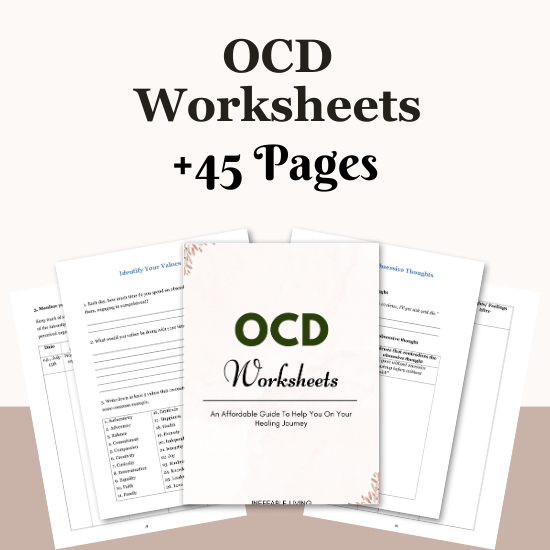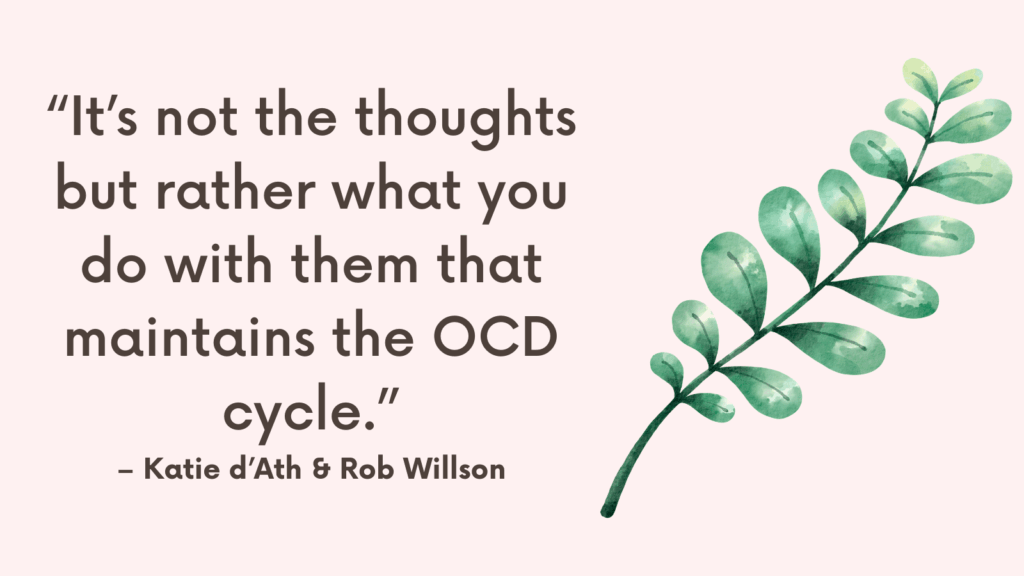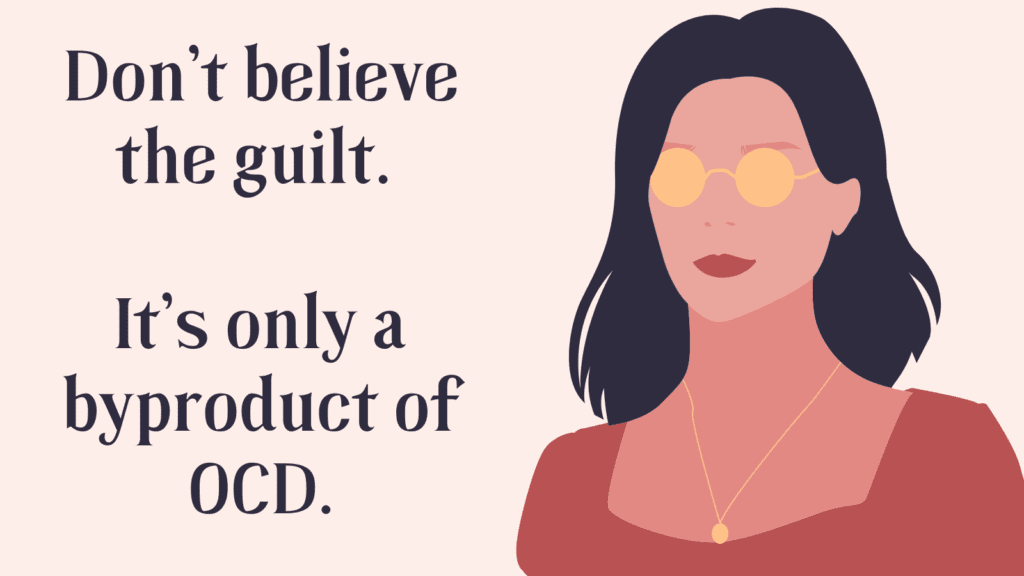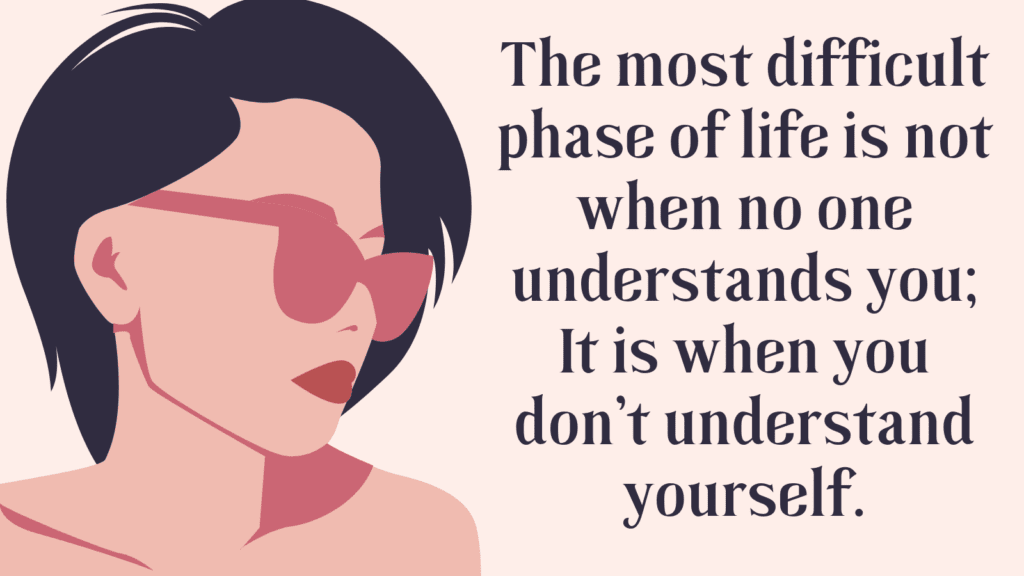An OCD relapse can feel discouraging—but it’s not a failure. It’s a part of recovery. OCD is a chronic condition, and flare-ups don’t erase your past progress. In fact, they can deepen your skills, sharpen your awareness, and strengthen your long-term resilience. What matters most isn’t that OCD came back—it’s how you respond when it does.
What a Relapse Really Means
Relapse in OCD can feel disheartening, especially after you’ve made significant progress. But relapse is not failure. It’s part of the healing journey.
Recovery from OCD rarely follows a straight line. There will be moments of strength and clarity, and then there will be setbacks. A relapse doesn’t mean all your hard work is lost. It simply means symptoms have resurfaced and need to be addressed again — this time with more knowledge and tools than before.
What a Relapse Often Looks Like
- Intrusive thoughts become more frequent or intense again
- You find yourself going back to compulsions or avoidance behaviors
- Anxiety feels overwhelming, like it did before treatment
- You feel like your old OCD themes are returning or new ones are forming
These signs don’t mean you’re back at square one — they mean your brain is under stress and reverting to old survival strategies. This is not uncommon.
Related: How To Let Go Of OCD? Top 6 Powerful Strategies to Treat OCD Using CBT (+FREE OCD Resources)
Why Relapses Happen
Several factors can trigger a relapse in OCD:
- Life transitions or increased stress
- Illness or poor sleep
- Stopping therapy or medication too soon
- Suppressing rather than confronting fears
- Experiencing new or evolving intrusive thoughts
Understanding these triggers can help you prepare for them rather than be caught off guard.
What to Do After an OCD Relapse?
1. Recognize That Relapse Is Common
OCD recovery isn’t linear. Many people experience waves of improvement and setbacks. A relapse doesn’t mean treatment didn’t work—it means you’re human, and the condition is resurfacing under stress, change, or triggers.
2. Catch the Relapse Without Judgment
Notice what’s happening without shame:
“I’ve started checking again.”
“I’m getting stuck in mental loops.”
Name the pattern clearly—judgment will only add fuel to the OCD cycle.
3. Recommit to the Basics
Go back to what helped before:
- Exposure and Response Prevention (ERP)
- Reducing avoidance
- Limiting reassurance
- Letting intrusive thoughts exist without engaging
These aren’t starting over—they’re returning to your strongest tools.
Related: How To Support A Friend With OCD? 7 Practical Ways You Can Help Someone With OCD
4. Identify What Triggered the Flare-Up
Reflect gently:
- Was there a life stressor or change in routine?
- Did you stop therapy or medication?
- Have subtle compulsions returned without you realizing it?
Understanding the why can help you prevent future spikes.
5. Talk to Your Therapist or Support Team
Don’t suffer in silence. A relapse is the exact time to reach out. Your therapist can help you adapt your ERP plan, process shame, and reinforce what works. Support groups or peer spaces can remind you you’re not alone.
6. Adjust Medication if Needed
If you’re on medication and symptoms have worsened, talk to your doctor. Dosages may need tweaking, or other options can be explored. Medication isn’t a crutch—it’s a tool for stability.
7. Use Relapse as Data, Not Defeat
Every relapse offers insight:
- What warning signs did I miss?
- What early habits crept back in?
- What can I do differently next time?
This turns relapse into refinement, not regression.
Related: Resources For OCD (Information, Podcasts, APPS, TED Talks, Books)
8. Don’t Rush Yourself Out of It
You don’t have to bounce back in a day. OCD takes time to untangle. Focus on small, consistent steps forward rather than forcing yourself to be “fine.”
9. Practice Relapse-Specific Self-Compassion
Say to yourself:
“It’s okay that I’m struggling again.”
“This doesn’t erase how far I’ve come.”
“I know what this is—and I know how to respond.”
10. Create a Relapse Plan for the Future
Once the episode settles, write down what helped, what didn’t, and what you want to remember if symptoms flare again. Having a written plan helps ground you when the next storm hits.
Related: Top 35 OCD Coping Skills

Conclusion
A relapse is not the end of your healing. It’s a chapter that can deepen your growth. You’ve faced OCD before—and every time it returns, you’re more prepared to meet it with strength, clarity, and courage.



